CCG promotes innovative new global governance projects at Paris Peace Forum
November 14 , 2018Initiated by French leader Emmanuel Macron to promote new solutions to global governance, the Paris Peace Forum took place from November 11 to 13. It is planned that the event, which began on the centenary of the end of World War I, becomes an annual platform to discuss peace and international cooperation.
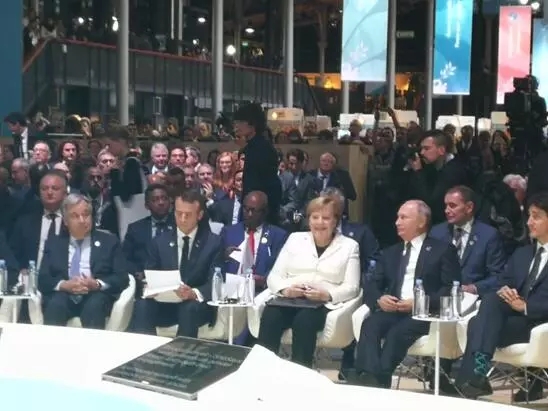
World leaders Macron, Merkel, Putin and Trudeau at the opening ceremony
The event opened on Sunday, with speeches by Macron, German Chancellor Angela Merkel and UN chief António Guterres. More than 60 national representatives and heads of international organizations were present, including Russian President Vladimir Putin, Canadian Prime Minister Trudeau, and the heads of the WTO, IMF, World Bank, OECD, among others.
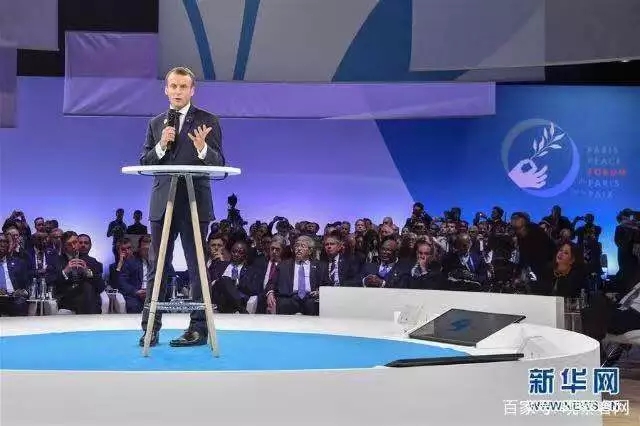
French President Macron speaks at the forum opening ceremony
CCG promoted two initiatives at the forum, namely establishing a Global Talent Organization Alliance to fill the global governance gap on talent, and creating an international e-commerce forum known as the D50 Enterprise Digital Economy Summit. Both proposals succeeded in gaining breakthrough attention, including recognition from the organizers, among the nearly 900 proposals initially put forward for the forum.
In addition, CCG President Wang Huiyao was elected to the Steering Committee of the Paris Peace Forum as one of 15 high-level experts to help guide the work of the forum.
CCG projects gain recognition
A key function of the inaugural Paris Peace Forum was to act as an incubator for new solutions for global governance. Out of nearly 900 proposals from more than 40 countries and organizations, 116 were selected for the forum.
The four Chinese proposals were the Chinese Embassy in France’s Belt and Road proposal, CCGs plans for the Global Talent Organization Alliance and DGO international e-commerce alliance, and a joint proposal from Fudan University and Nazarbayev University on new energy. A full list of the proposals can be seen here. https://parispeaceforum.org/projects/
At the opening ceremony, world leaders and heads of international institutions such as the IMF, WTO, World Bank, OECD, UNESCO, and ILO discussed new developments in global governance. After the opening ceremony, Wang Huiyao CCG’s governance projects to the UN Secretary-General Guterres and Ji Bingxuan, Vice Chairman of the NPC Standing Committee.
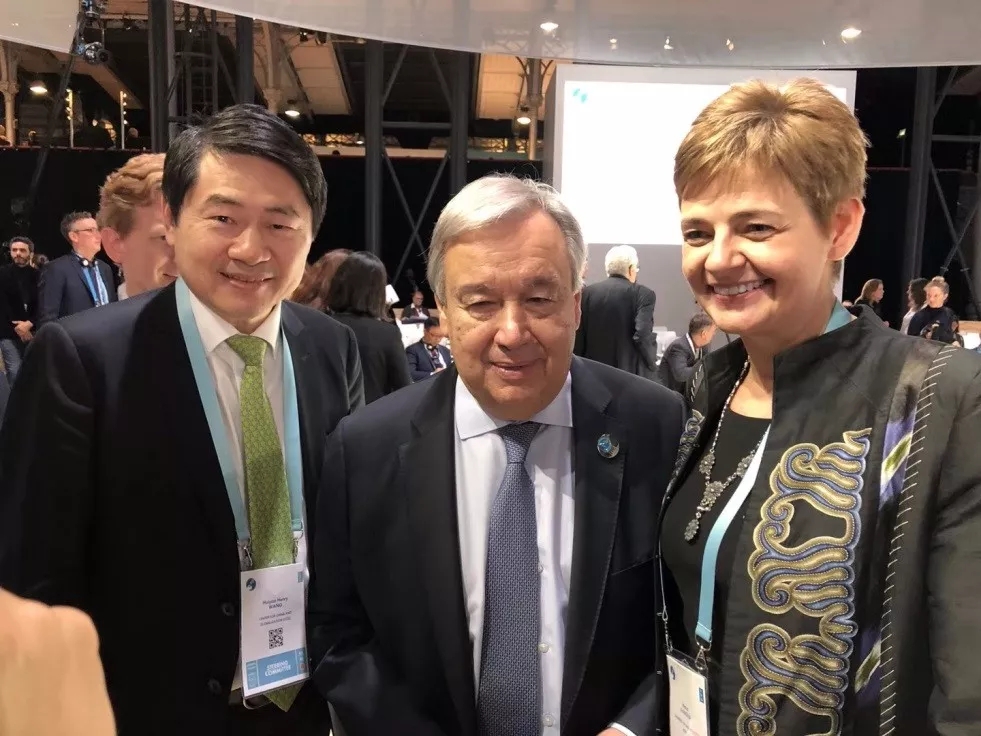
CCG President Wang Huiyao introduces CCG global governance projects to UN Secretary-General Guterres
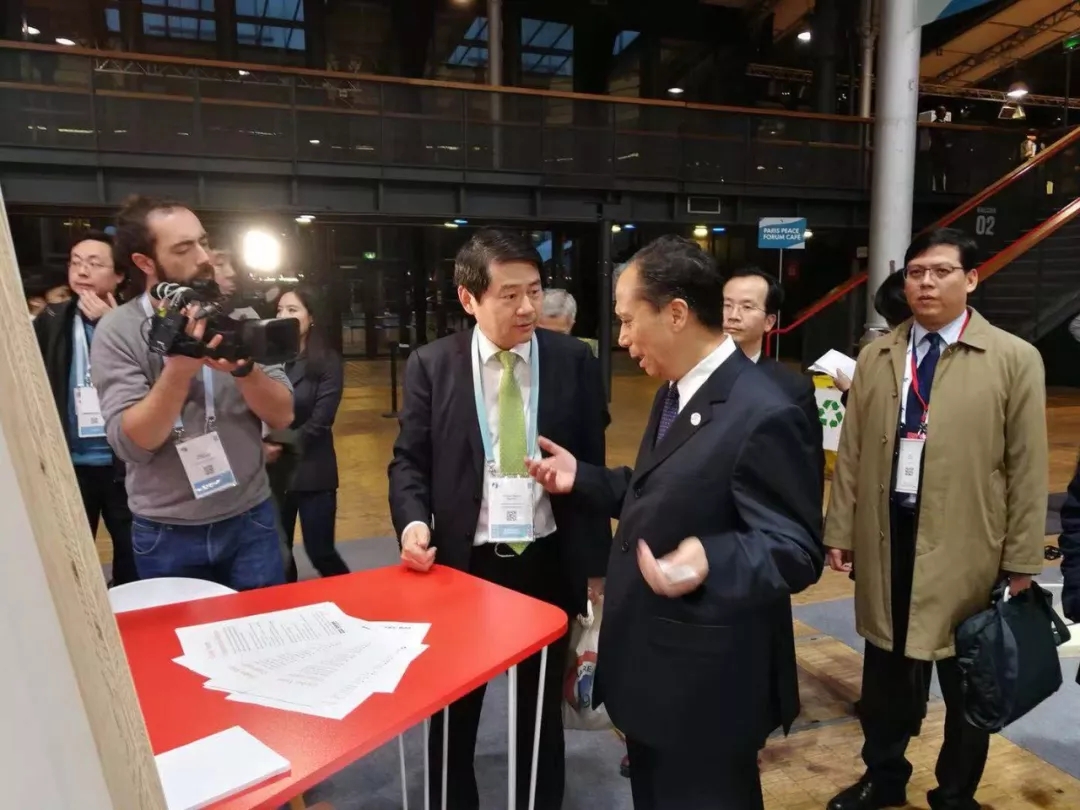
CCG President Wang Huiyao introduces CCG’s global governance projects to Ji Bingxuan, vice chairman of the NPC Standing Committee
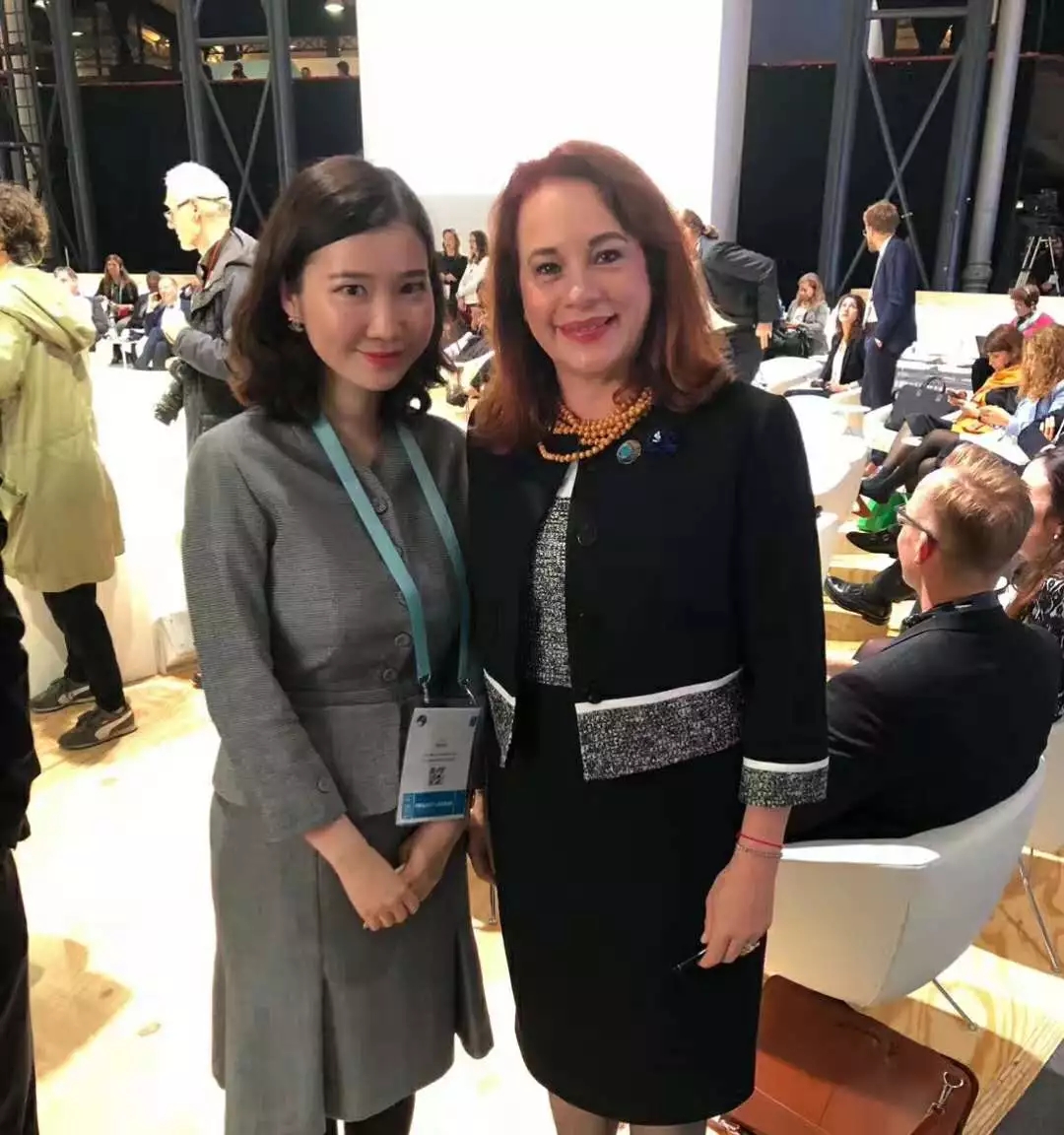
CCG Executive Secretary General Miao Lu presents CCG projects to María Fernanda Espinosa Garcés, President of the 73rd United Nations General Assembly
CCG president elected to steering committee
Also at the event, CCG President Wang Huiyao was elected to the Steering Committee of the Paris Peace Forum. This steering committee will act as a mini “think tank” for the forum, bringing together 15 high-level experts in global governance from different countries around the world, helping to provide input and guide the development of the forum.
The chairman of the steering committee Pascal Lamy, who served as the Director-General of the WTO for two consecutive terms. Among fellow committee members from NGOs, academia and social organizations, Wang’s presence will bring a Chinese voice to this important forum on global governance.
Changing times call for new governance solutions
Multilateralism is facing unprecedented challenges from declining international cooperation, rising populism, and weakening of global governance institutions. International mechanisms that have done much to underpin peace and prosperity in the 20th century have not adapted to meet the new international challenges of our times. There is a lack of governance and shared standards to facilitate globalization in key fields such as the digital economy. Transnational problems such as climate change pose a serious threat, particularly to vulnerable populations. To address this range of challenges, the Peace Forum seeks to convene leaders from all walks of life to identify and support solutions to global problems.
CCG’s two initiatives – the creation of the Global Talent Organization Alliance and D50 Enterprise Digital Economy Summit both seek to address current deficiencies in global governance, facilitating cooperation between multilateral institutions, governments, experts, business leaders, and NGOs to collaborate in solving issues related to global talent flows and e-commerce respectively.
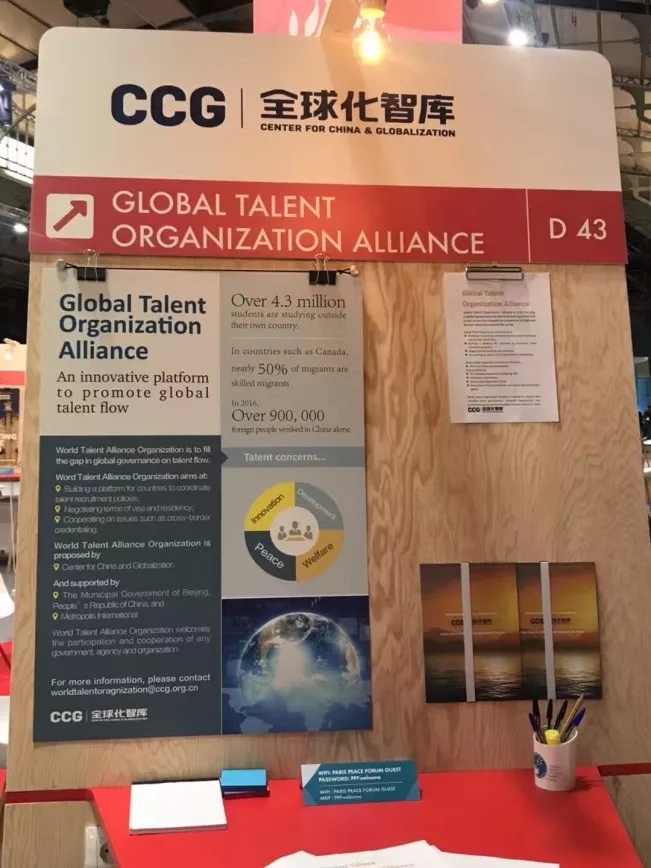
At present, the global flow of talent is hindered by divergent national policies relating to visas, talent, and social welfare. This not only restricts the free flow of talent but can inhibit the ability of some regions to attract the talent necessary for development. To address these issues, CCG proposed the creation of the Global Talent Organization Alliance, which can provide a platform for governments to coordinate with major migration organizations and institutions around the world.
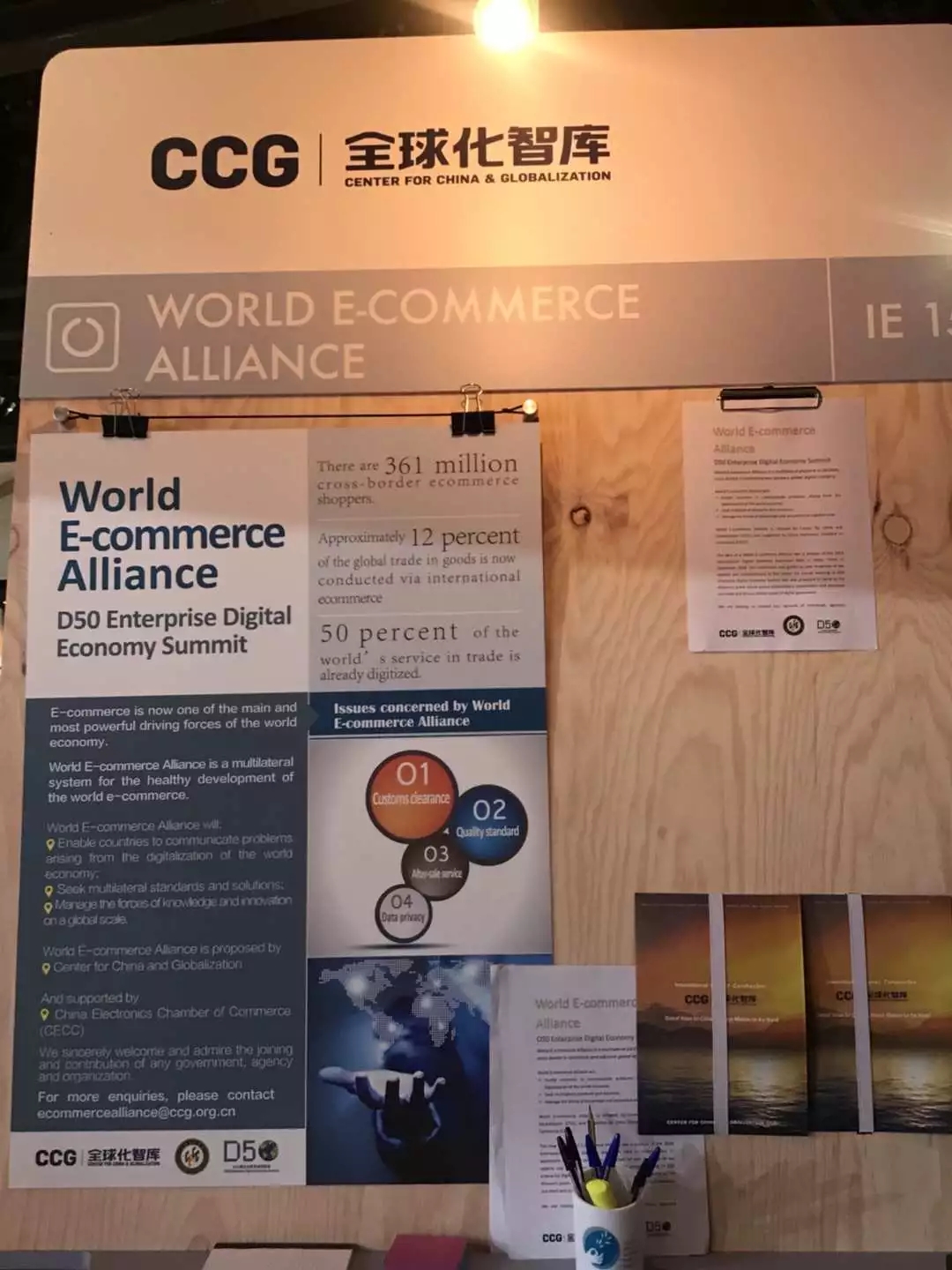
CCG’s other proposal was the World E-Commerce Alliance D50, a platform to connect experts from business, government and international organizations to address issues related to the digital economy and information flows, helping to expand the benefits of e-commerce.
The D50 Enterprise Digital Economy Summit was launched by CCG and the China Electronic Chamber of Commerce on September 20th at the 2018 International Digital Economy Expo to enhance nongovernmental actors’ role in building a healthy and inclusive global digital economy.
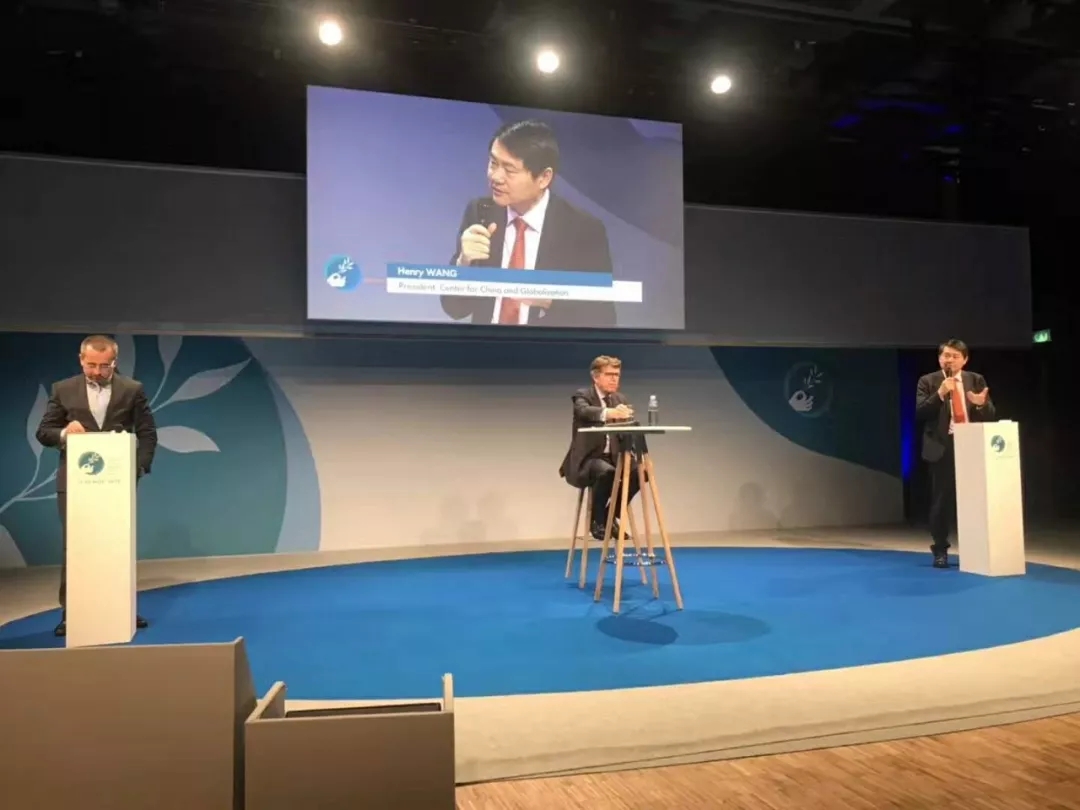
CCG President Wang Huiyao participates in discussion on think tanks and policymaking
Connecting think tanks and decision makers
On November 12, CCG President Wang Huiyao took part in a discussion as a representative of the Chinese think tank community. The discussion focused on how to improve policymaking, in particular by matching decision makers to think tankers. The discussion was moderated by Thierry De Montbrial, founder and executive president of Institut Français des relations internationals. The conversation also featured Sebastian Groth, deputy director for policy planning, German Ministry of Foreign Affairs; Maty Nikkhou-O’Brien, former executive director, New Zealand Institute of International Affairs and founder and director of Diplosphere; Stewart Patrick director of the International Institutions and Global Governance Program, Council on Foreign Relations; and Oleg Stepanov, director for policy planning, Russian Ministry of Foreign Affairs.






